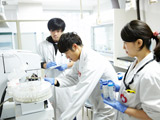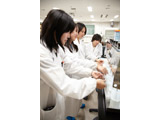School of Life and Environmental Science
The educational philosophy and goal of the School of Life and Environmental Science is to develop the education and research necessary for nurturing a healthy existence from the standpoint of life science and environmental science. We cultivate capable people who are well-equipped to respond to environmental problems and challenges, as well as highly specialized technical personnel who work for the maintenance and improvement of human health and safety and for the preservation of our environment.
Department of Medical Technology
Students gain a mastery of the basic knowledge related to various diseases, acquire technical skills and expertise related to clinical examinations, and attain the high ethical standards required of health care workers. We train human healthcare specialists as well as clinical laboratory technicians involved with team medical care
Qualifications
With the objective of all students obtaining the National Qualification in Medical Technology, students take a course in Comprehensive Clinical Testing from the spring semester of the third year in preparation for the national test. As well as all students taking preparatory lectures until just before the test, e-learning practice for past questions and mock tests are also implemented.
Classroom Scene
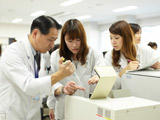
Biochemistry
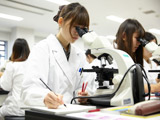
Pathology
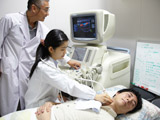
Department of Food and Life Science
Students will gain a thorough knowledge of food science and technical skills with the goal of maintaining and continuing to develop a healthy society. We train food science specialists to be active in a wide range of fields related to food. Students will study the science of safety and functionality of food, a familiar part in our daily lives, from two different approaches. The first is the field of applied food science, in which students explore food education and applications to the food health and medical fields. The second approach is from the basis of food regulatory science, in which students gain an accurate understanding of food safety and food security and the ability to evaluate them.
Classroom Scene
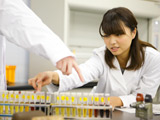
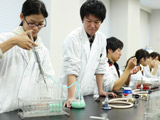
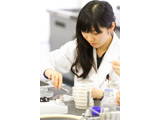
Department of Environmental Science
Passing on a rich and well-cared for environment to future generations is an eternal challenge facing the human race. We are nurturing human resources capable of accurately grasping the environmental problems currently occurring on our planet and well-equipped to tackle the issues of conservation, all the while leveraging our accumulated knowledge of science and technology.
Classroom Scene
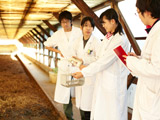
Hygiene
and Practices
